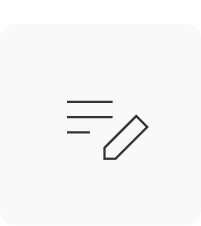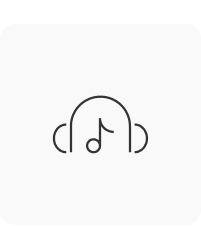"Take Your First Step into Korean Learning!"
Main topics of the Level 1 course:
- Basic greetings
- How to count numbers in Korean
- Basic grammar for forming your first Korean sentences
- Present and past tense
- How to say "who", "why", and "how" in Korean
Table of Contents
![]() Average lesson length: 13 minutes
Average lesson length: 13 minutes
Lesson 1. Hello. Thank you. / 안녕하세요. 감사합니다.
Lesson 2. Yes. No. What? / 네. 아니요. 네?
Lesson 3. Good-bye. See you. / 안녕히 가세요. 안녕히 계세요. 안녕.
Lesson 4. I’m sorry. Excuse me. / 죄송합니다. 저기요.
Lesson 5. It’s me. What is it? / 저예요. 뭐예요?
Lesson 6. What is this? This is … / 이거 뭐예요? 이거…
Lesson 7. This, That, It / 이, 그, 저
Lesson 8. It’s NOT me. / 아니에요.
Lesson 9. Particles for Topic and Subject / 은, 는, 이, 가
Lesson 10. have, don’t have, there is, there isn’t / 있어요, 없어요
Lesson 11. Please give me. / 주세요.
Lesson 12. It’s delicious. Thank you for the food. / 맛있어요. 잘 먹겠습니다. 잘 먹었습니다.
Lesson 13. I want to … / -고 싶어요
Lesson 14. What do you want to do? / 뭐 하고 싶어요?
Lesson 15. Sino-Korean Numbers / 일, 이, 삼, 사
Lesson 16. Basic Present Tense / -아요, -어요, -여요
Lesson 17. Past Tense / -았/었/였어요 (했어요)
Lesson 18. Particles for Location / 에, 에서
Lesson 19. When / 언제
Lesson 20. Native Korean numbers / 하나, 둘, 셋, 넷
Lesson 21. Negative Sentences / 안, -지 않다
Lesson 22. 하다 verbs
Lesson 23. Who? / 누구?
Lesson 24. Why? How? / 왜? 어떻게?
Lesson 25. From A To B, From C Until D / -에서/부터 -까지
Review What You’ve Learned in Level 1
Why you'll LOVE our Essential Korean Curriculum
All Levels Covered Short and Digestible Lessons Fun Story-based Reviews Review Quizzes and Interactive Audio Lessons
By simply following our curriculum that covers 10 levels, you can take your Korean skills from absolute beginner all the way up to advanced.
Each lesson is bite-sized and easy to understand, as it focuses on one grammar point at a time and provides many example sentences.
You can review the entire course through a fun story! The final lesson of each course features a fun story that allows you to review all the grammar and vocabulary introduced in the course.
You can test your new knowledge through review quizzes and interactive audio lessons, where our teachers ask you questions, and you can respond and check where you need to improve.
Who teaches this course?


What you can find in this course:

Lesson notes

MP3 file

PDF file

Sample dialogues

Sample dialogues

Review lesson
[Updated] Learn to Read and Write in Korean (Hangeul)![]()
#Hangeul #KoreanLetters #AbsoluteBeginners
How Korean Sentences Work![]()
#KoreanSentences #Grammar #Beginner
30 Essential Korean Adjectives For Beginners![]()
#KoreanAdjectives #Vocabulary #Beginner
20 Essential Korean Phrases For Beginners![]()
#KoreanPhrases #Speaking #Beginner
Level 1 Textbook ![]()
Level 1 Workbook ![]()
Level 1 Textbook & Workbook Package ![]()
More courses & books you might also like
[Updated] Learn to Read and Write in Korean (Hangeul)![]()
#Hangeul #KoreanLetters #AbsoluteBeginners
How Korean Sentences Work![]()
#KoreanSentences #Grammar #Beginner
30 Essential Korean Adjectives For Beginners![]()
#KoreanAdjectives #Vocabulary #Beginner
20 Essential Korean Phrases For Beginners![]()
#KoreanPhrases #Speaking #Beginner
Level 1 Textbook ![]()
Level 1 Workbook ![]()
Level 1 Textbook & Workbook Package ![]()






One of the sample sentences on lesson 5 is “100명쯤 왔어요.”
I’m wondering why it’s pronounced [BAENG-myeong-jjeum wa-sseo-yo] and not [BAEK-myeong-jjeum wa-sseo-yo]. I thought 100 is pronounced as “baek”? Did I miss something?
Yup. ㄱ is a hard sound, so if the following word’s beginning consonants is a soft sound such as ㄴ, ㅁ and ㅇ, the ㄱ sound would become the similar soft sound => ㅇ. Even though it was “baek myung”, people tend to pronounce it as “baeng myung” for more natural flow.
ㄱ, ㅋ=> ㅇ
ㅂ, ㅍ=> ㅁ
ㄷ,ㅈ,ㅅ,ㅌ,ㅊ=> ㄴ
Ah, that makes sense! 고맙습니다!
제가 질문이 있어요 :
왜 새롭다 과거 시제에서 새로워요 왜 새로와요 아니예요??
새롭다 is a ㅂ irregular verb. Therefore, when you want to conjugate it, you have to remove the ㅂ from the verb stem and add ㅜ to it. As a result, the conjugated 새롭다 would be 새로우. In the polite present form, it would become 새로우 + 어 (because the ending vowel is ㅜ) =>새로워요. Hopefully, it makes sense enough. 🙂
Hi, I just listened to the second lesson of the third level about the linking Verb 고.
Here my question: If I want to use the verb 싶다 with a verb before it, how where is the 고?
For example :
읽고싶어요. 그리고 쓰고싶어요.
Is it
읽고 쓰고싶어요.
Or
읽고싶어고 쓰고싶어요.
읽고 쓰고 싶어요. 읽고 싶고 쓰고 싶어요. Both are fine.
고맙습니다
Hi, for lesson 7 why is 모으다 turned into 모아서 when the verb stem ends the way it does? Is it irregular? Thank you in advance for any help.
Yes. You are right. It’s irregular.
모으다. 모으고. 모아서. 모았어요. etc
Thank you!
So I wanted to ask, if someone has tips on how to use korean in my everyday life, even if I can’t talk/text with someone in korean? ^^ thanks
Hellotalk is a really nice app where you get to record your voice and chat with Korean people. I usually write down what I do during the day and people correct me!!! Another thing that I do is talking to myself in Korean. So, instead of saying in English (or your native language) phrases like: oh, I’m gonna study Korean now, I say: 지금 한국어 공부할 거예요.
Hi, there! I was checking the sample dialogue for lesson 7: Linking Verbs With -아/어/여서 when I noticed that the content was not related to the topic. Am I wrong? The dialogue was basically:
A: 한국어보다 중국어가 더 쉬워요?
B: 네, 중국어가 더 쉬워요.
A: 왜요?
B: 영어랑 비슷해서요.
I can’t see the structure here. Is 비슷해서요 part of the 4th usage, the fixed expressions?
It’s the first usage.
영어랑 비슷해서요 = Because it’s similar to English.
안녕하세요, TTMIK 정말 감사합니다! Without you the quarantine would be 재미 없어요. (?)
Thank you! : )
Without you guys, everything would be 재미없을 거예요 too.
안녕하세요, 누군가 한국어를 연습하고 싶으면, 이 제 카카오 아이디 ig00ri 예요.
Hi guys, If someone would like to practice Korean, this is my kakao id ig00ri.
if ig00ri does not work, try with the capital letter “I” ^^
hi guys! I have made a new Instagram based on my korean studies and would love your support and follow, and also we could help each other learn korean by becoming buddies! my Instagram username is tangerinestudies_
오늘은 사무실에 사장님가 안와써요. 우리가 치킨 먹었요. 5시에 집에소 다들가써요
Hi. I just finished level 2 and abt to start with level 3. I tried to write some of the things I did today in korean. But it seems that i’m still terible in constructing sentences. I tried to translate it in google but the trans seems not right. Or maybe google is not reliable. Anyways, TTMIK 선생님, 정말 감사합니다. 수업 너무 재미있어요. 저 한곡어 진짜 하고싶어요. 화이팅 여러분!!!!
오늘은 사무실에 사장님이 안오셨어요(안왔어요). 우리가 치킨 먹었어요. 모두(다들) 5시에 집에 갔어요. Keep working on it 🙂 한국어 공부 화이팅!!
I think lesson 18 밖에 should have been tought at the same time as lesson 15 in level 2 with 만.in order to avoid confusion . If you listen to level 5 lesson 15 you think the only way to say only is 만.
Thank you for your comment, but there were reasons to teach them separately like avoiding confusions for beginners. Hope this helps 🙂
👍👍👍
I’m just starting level 3! If anyone wants to be a studybuddy, please add me on kakaotalk! My ID is ladysi20 🙂 Just let me know that you found my ID from here!
I wanna start with level 3 now
Try to find you in kakaotalk, but couldn`t
“이 드라마 몰라는데 재미있네요.” Is this sentence correct?especially ‘몰라는데’
이 다라마 잘 모르는데 재미있네요 <-- sounds more natural to me. When you conjugate with ㄴ/는 데 you have to use the base form of the verb.
이 드라마 몰랐는데 재밌네요